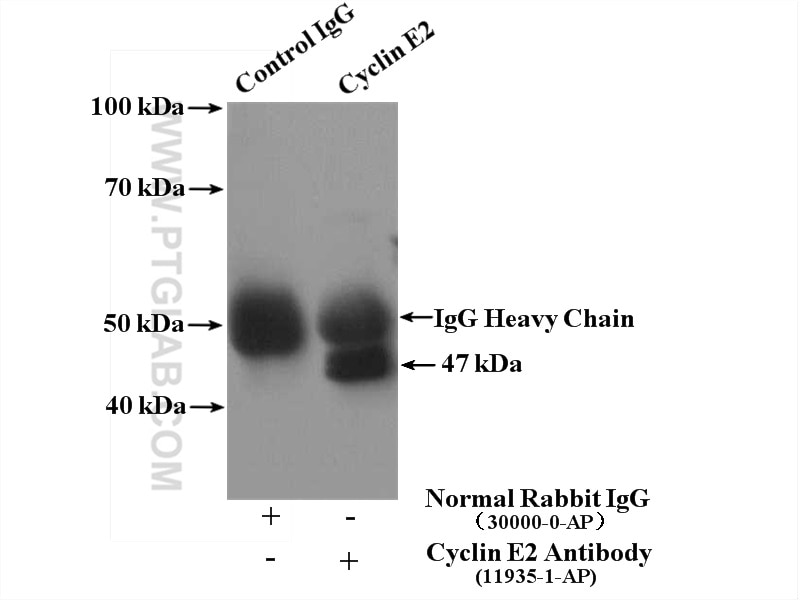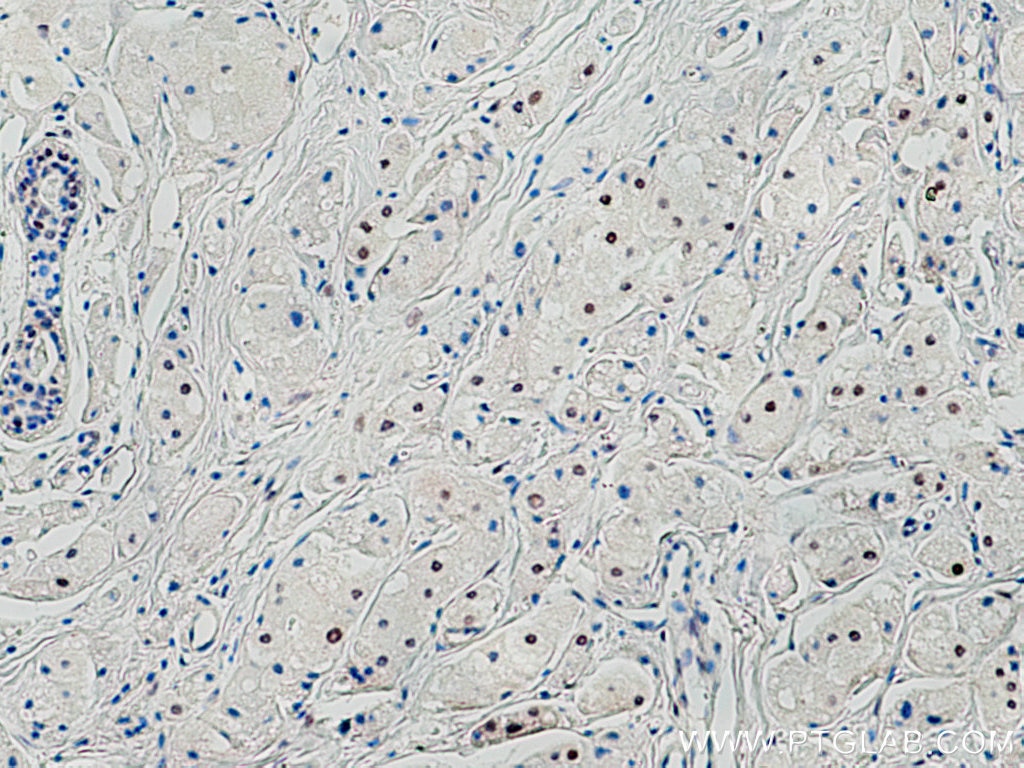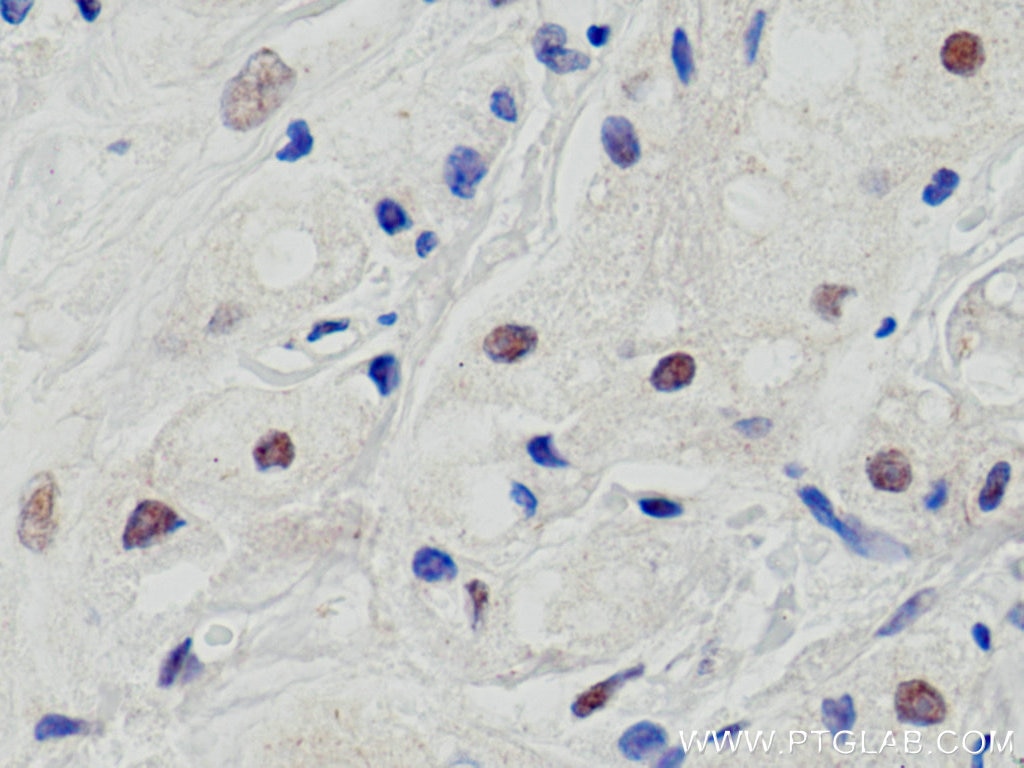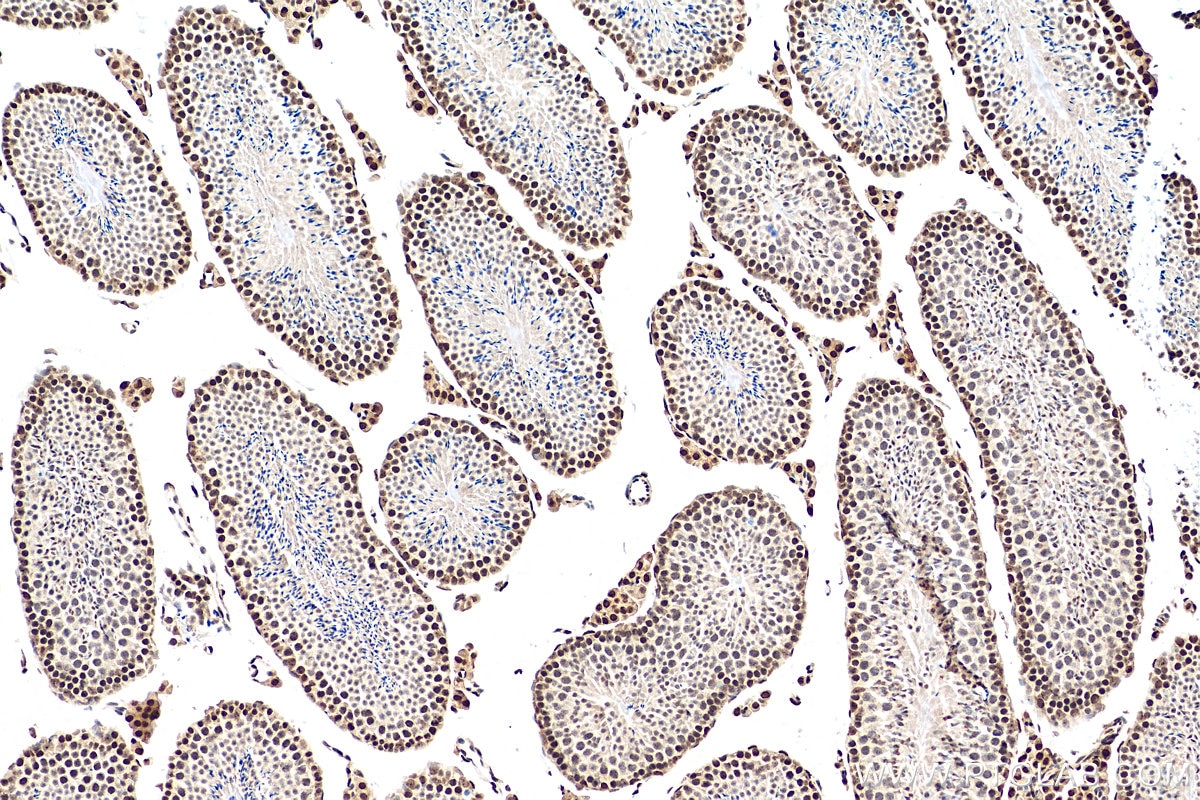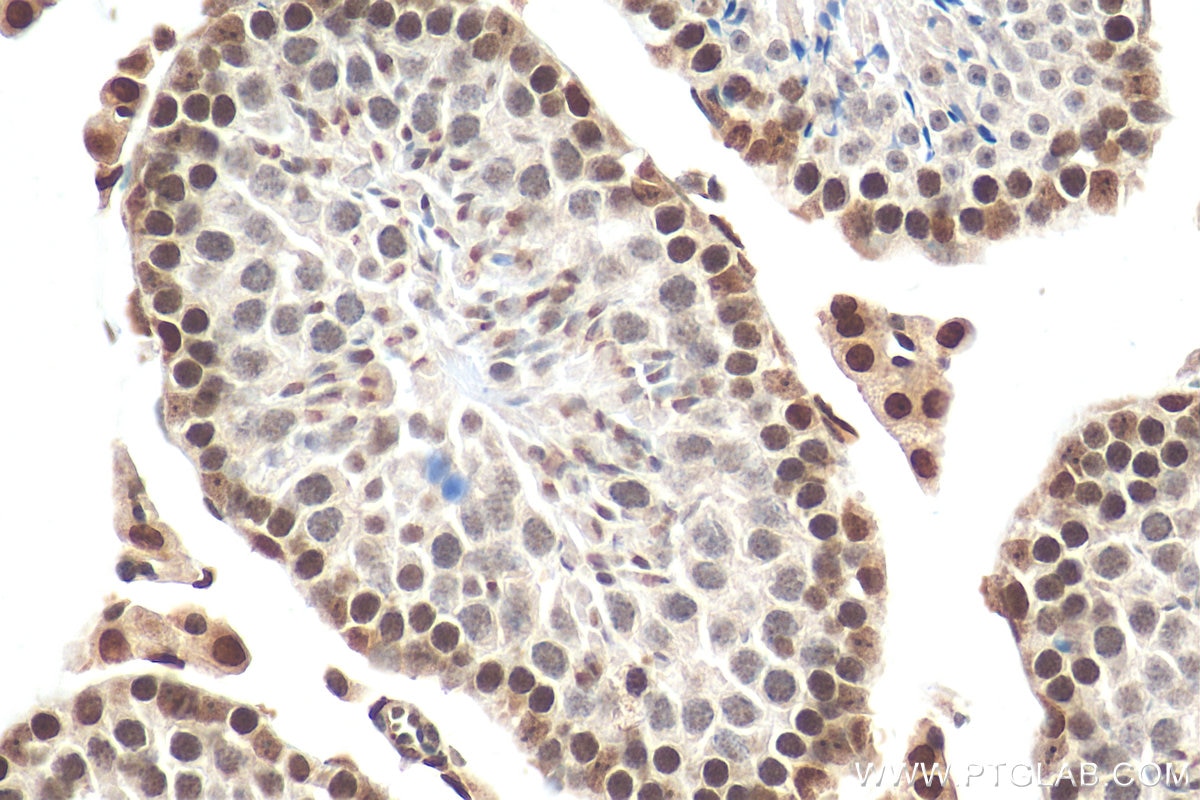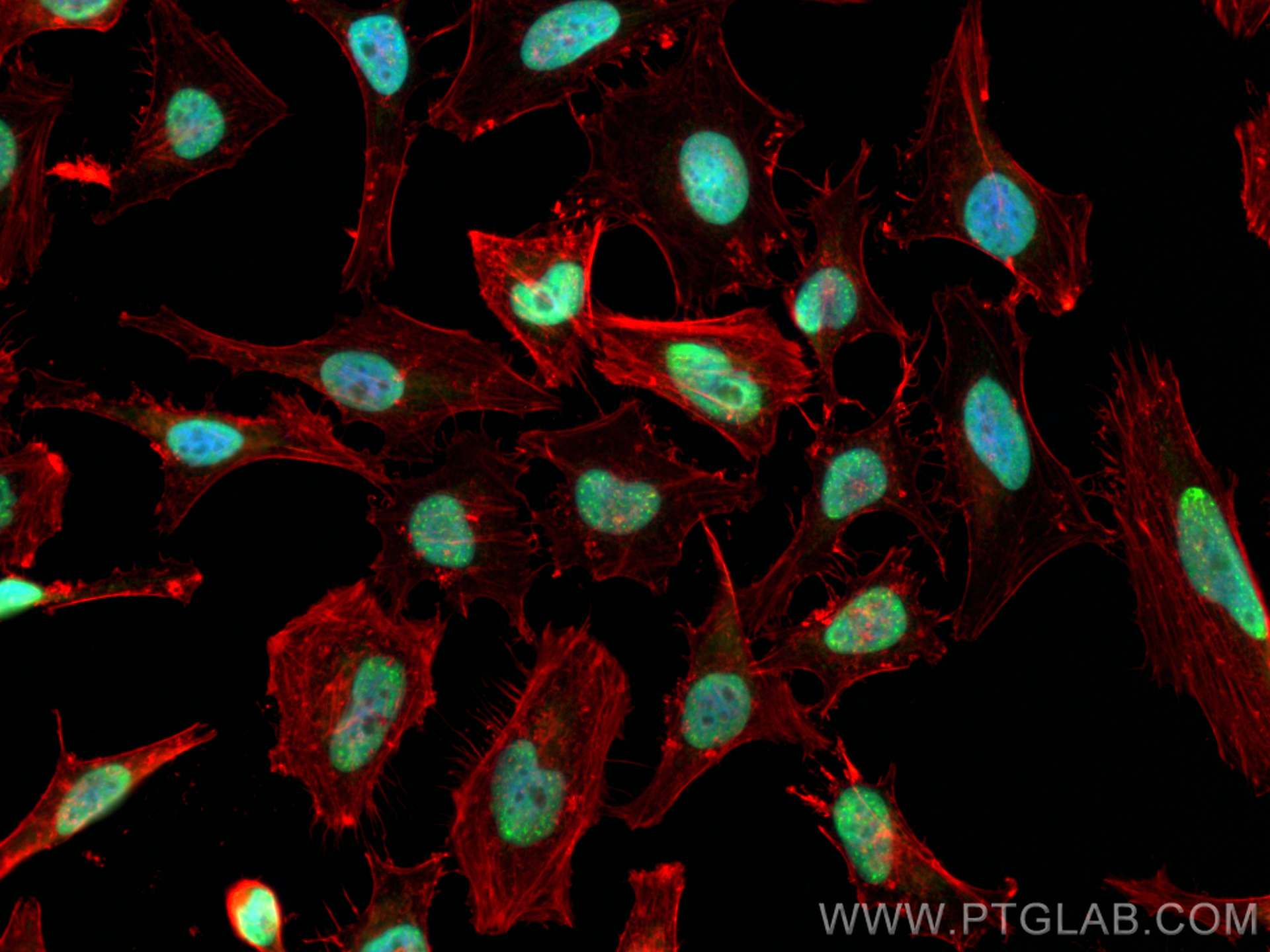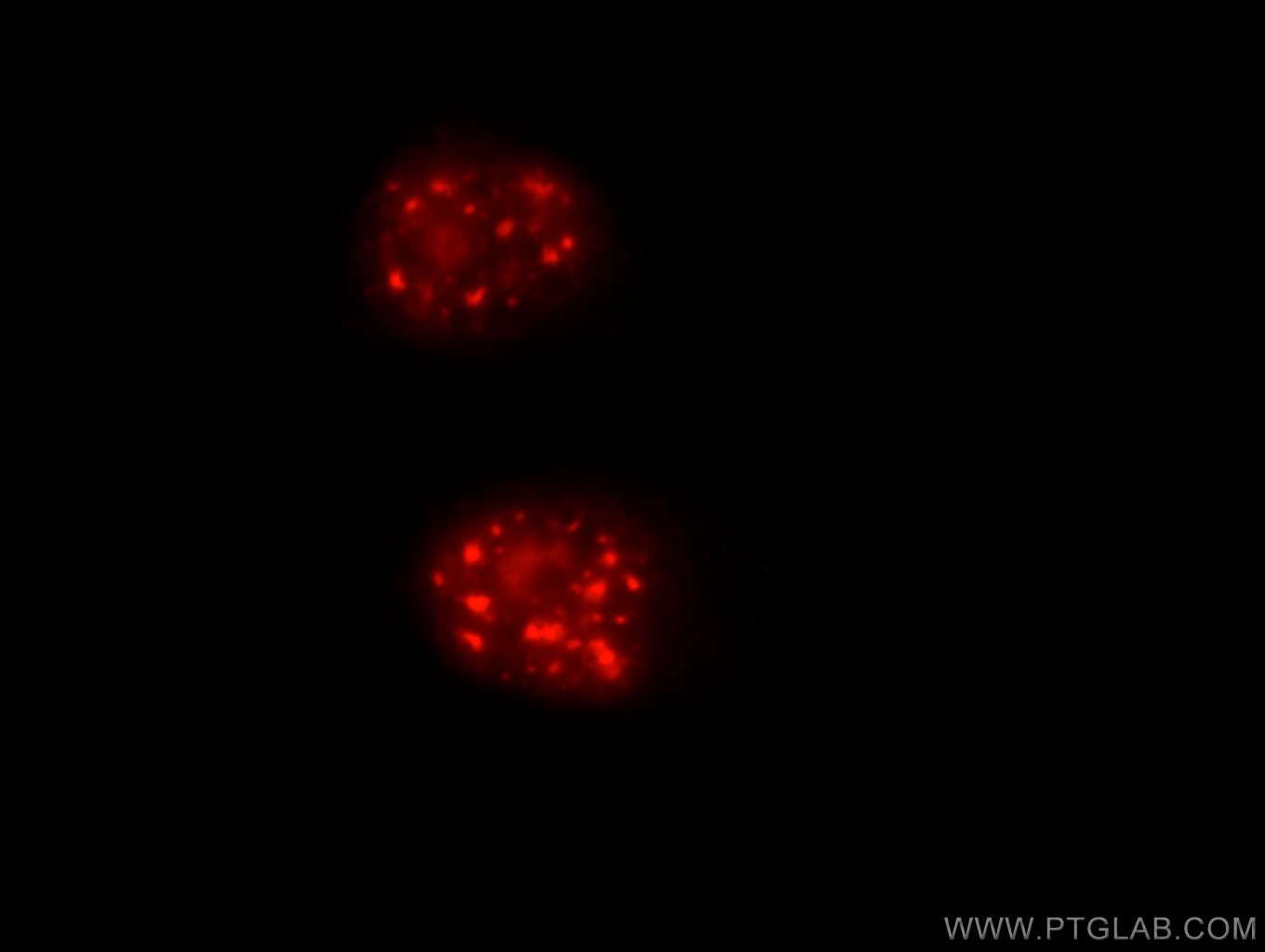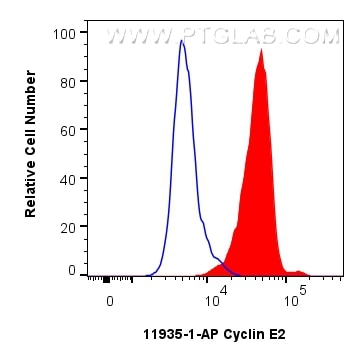Validation Data Gallery
Tested Applications
| Positive IP detected in | Jurkat cells |
| Positive IHC detected in | human breast cancer tissue, mouse testis tissue Note: suggested antigen retrieval with TE buffer pH 9.0; (*) Alternatively, antigen retrieval may be performed with citrate buffer pH 6.0 |
| Positive IF/ICC detected in | HeLa cells |
| Positive FC (Intra) detected in | HeLa cells |
Recommended dilution
| Application | Dilution |
|---|---|
| Immunoprecipitation (IP) | IP : 0.5-4.0 ug for 1.0-3.0 mg of total protein lysate |
| Immunohistochemistry (IHC) | IHC : 1:400-1:1600 |
| Immunofluorescence (IF)/ICC | IF/ICC : 1:200-1:800 |
| Flow Cytometry (FC) (INTRA) | FC (INTRA) : 0.25 ug per 10^6 cells in a 100 µl suspension |
| It is recommended that this reagent should be titrated in each testing system to obtain optimal results. | |
| Sample-dependent, Check data in validation data gallery. | |
Published Applications
| WB | See 48 publications below |
| IHC | See 4 publications below |
| IF | See 1 publications below |
Product Information
11935-1-AP targets Cyclin E2 in WB, IHC, IF/ICC, FC (Intra), IP, ELISA applications and shows reactivity with human, mouse samples.
| Tested Reactivity | human, mouse |
| Cited Reactivity | human, mouse, rat |
| Host / Isotype | Rabbit / IgG |
| Class | Polyclonal |
| Type | Antibody |
| Immunogen | Cyclin E2 fusion protein Ag2532 相同性解析による交差性が予測される生物種 |
| Full Name | cyclin E2 |
| Calculated molecular weight | 374 aa, 44 kDa |
| Observed molecular weight | 44 kDa |
| GenBank accession number | BC020729 |
| Gene Symbol | CCNE2 |
| Gene ID (NCBI) | 9134 |
| RRID | AB_2228593 |
| Conjugate | Unconjugated |
| Form | Liquid |
| Purification Method | Antigen affinity purification |
| UNIPROT ID | O96020 |
| Storage Buffer | PBS with 0.02% sodium azide and 50% glycerol , pH 7.3 |
| Storage Conditions | Store at -20°C. Stable for one year after shipment. Aliquoting is unnecessary for -20oC storage. |
Background Information
Cyclin E2 (CCNE2) belongs to the highly conserved cyclin family, whose members are characterized by a dramatic periodicity in protein abundance throughout the cell cycle. Cyclins function as regulators of cyclindependent kinases (CDKs). Different cyclins exhibit distinct expression and degradation patterns which contribute to the temporal coordination of cell cycle events. CCNE2 forms a complex with and functions as a regulatory subunit of CDK2 and has been shown to specifically interact with CIP/KIP family of CDK inhibitors. CCNE2 plays a role in cell cycle G1/S transition and its expression peaks at the G1-S phase. Whereas cyclin E1 is expressed in most proliferating normal and tumor cells, cyclin E2 levels are low or undetectable in nontransformed cells, and are elevated in tumor-derived cells.
Protocols
| Product Specific Protocols | |
|---|---|
| IHC protocol for Cyclin E2 antibody 11935-1-AP | Download protocol |
| IF protocol for Cyclin E2 antibody 11935-1-AP | Download protocol |
| IP protocol for Cyclin E2 antibody 11935-1-AP | Download protocol |
| Standard Protocols | |
|---|---|
| Click here to view our Standard Protocols |
Publications
| Species | Application | Title |
|---|---|---|
Mol Cancer LncRNA TROJAN promotes proliferation and resistance to CDK4/6 inhibitor via CDK2 transcriptional activation in ER+ breast cancer. | ||
Theranostics Polycomb repressive complex 1 modulates granulosa cell proliferation in early folliculogenesis to support female reproduction | ||
Mol Ther Nucleic Acids miRNA in food simultaneously controls animal viral disease and human tumorigenesis. | ||
Mol Ther Nucleic Acids lncRNA STEAP3-AS1 Modulates Cell Cycle Progression via Affecting CDKN1C Expression through STEAP3 in Colon Cancer. | ||
Oncotarget Upregulation of E2F8 promotes cell proliferation and tumorigenicity in breast cancer by modulating G1/S phase transition. |
